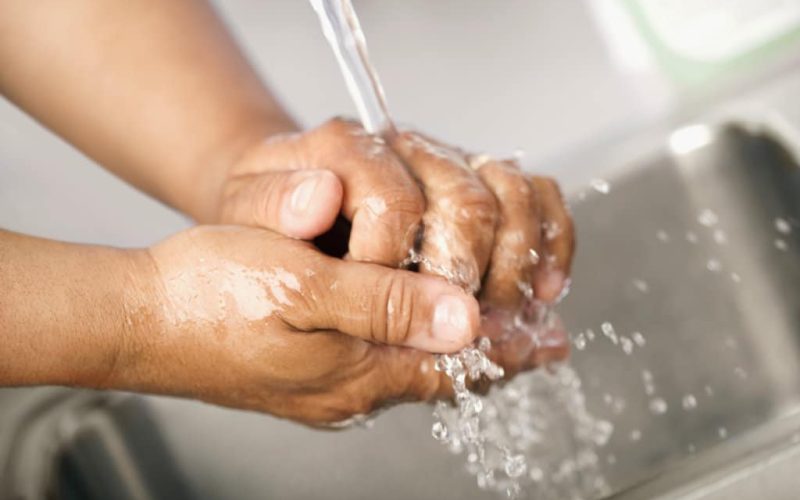Since the creation of the world, one thing has always existed and remains relevant till present; water.
Whichever theory of creation you choose to believe, the presence of water from the beginning of time has always been an essential part of all creation stories around the world and even the controversial evolution theory. The planet we live in is a proof that water covers more than half the world’s space.
The earth’s water space is so large that it is yet to be thoroughly explored. For aquatic animals, the absence of water from the world would mean the end of their existence.
Oh, it would mean the end of life as we know it. Water is an essential part of the human existence; not a day goes by without every person in the world having a water-related activity.
From cooking, having our baths, doing laundry, growing food, to the production of various items the value of water cannot be compromised.
Even the human body requires water for hydration to replace the liquid we lose in sweat, urine, and tears. For people like me, drinking water is a habit I cannot get enough of.
Doctors say that drinking enough water daily is essential for healthy living as it keeps the body system running and cleanses it from impurities.
When it comes to beauty, water is there to play a lead role. For bright and beautiful skin, we are advised to drink a lot of water alongside other skin treatments. Even the growth of healthy hair requires enough consumption of water.
However, as important as water is to all things living, some humans have shown to be allergic to water regardless of its temperature or level of purity. Water allergy is a rare medical condition, but it does exist.
Some other unusual medical conditions include the laughing death disease, Alice in Wonderland syndrome, and the foreign accent syndrome.
What Is Water Allergy?
Aquagenic urticaria, also called water allergy, is an uncommonly diagnosed type of physical urticaria. However, water allergy is different from other forms of urticaria because it is not a histamine releasing kind of allergic reaction.
People with Aquagenic urticaria react to contact with water regardless of how hot, warm, or cold it is. This allergic reaction extends to even reach with patients own tears, sweat and urine.
You might be thinking this has to do with the level of purity of the water victims come in contact with, but it would interest you to know that this has nothing to do with contaminated water. No matter how treated or germ-free the water is, sufferers of water allergy will have an allergic reaction.
So how do they have a bath, go out in the rainy seasons, drink water, or even brush their teeth? I asked myself these same questions when I first learnt of this rare medical condition.
But one thing is sure, kids with this condition can’t have fun in the snow like their friends, and that will hurt them more than the knowledge that they have a water allergy.
Symptoms of water allergy
Water allergy is a form of the physical hive. And like other physical hives, its symptoms include the appearance of a rash on the victim’s skin, intense itching, and redness of the skin, inflammation, burning sensation, difficulty in breathing, difficulty in swallowing, rash around the mouth, welts, and wheezing.
However, when the victim’s body begins to dry off the water, the reactions start to fade out within half an hour to one hour gradually. The water allergy condition is so rare that less than a hundred cases of it have been recorded in medical literature so far.
Some Reported Cases of Water Allergy
Alexandra Allen is a teen from Mapleton, Utah. According to Miss Allen, as a little girl, she had dreams of becoming a marine biologist and making a sailboat her home. However, when she became 12years old, she had her first terrible water reaction.
She recalled going on a vacation with her family and decided to spend some time swimming in a hotel pool, little did she know that she would spend the rest of that night scratching her body.
Allen woke her when her body began to itch, and she noticed she was already covered in hives. Allen reportedly sat in her bathroom trying to fight the urge to scratch her body so as not to worsen her condition before her mother came with a Benadryl.
Before Alexandra Allen was diagnosed of water allergy, she had thought that she was suffering from chlorine reaction, or she was allergic to other harsh chemicals that were used in the treatment of swimming pool water, so she made sure to avoid swimming in pools.
However, she had the same allergic reaction when she went swimming in a lake popularly known to have clean water. At the age of 15, Alexandra Allen was surfing the web when she stumbled on a site that discussed water allergy, and she realised that all the symptoms listed there described her condition perfectly.
To confirm her assumption, Allen took her discovery to her dermatologist. Allen recalled how her dermatologist called in other medical doctors and she had to do a test to confirm the assumed diagnosis of her condition.
According to the young lady, she had to soak herself in a bathtub containing water, and the reaction began to manifest. The doctors were awed by the discovery.
Another reported case of water allergy is that of little miss Ivy Angerman. This toddler from Minnesota has Aquagenic urticaria that causes her to react to both her tears and sweat.
The mother of 18months old Ivy reported that her daughter who used to be a big fan of shower hour now cries in pain whenever she has a bath.
Miss Ivy always has to run around while whining and complaining of experiencing a burning sensation every time she comes in contact with water.
Although Ivy’s kind of water reaction is believed to be peculiar to teenage girls, the case of this toddler has redefined the assumption.
What Causes Aquagenic Urticaria?
Like some rare medical conditions, the cause of water allergy is yet to be discovered, but researches are still ongoing to determine with reason.
When the human body is allergic to any substance, it releases histamine to combat the allergy, and this causes a manifestation of allergic reactions.
Is There A Cure?
There is presently no cure for water reaction, but there are options of treatment for the allergic reactions. Also, sufferers are advised to stay away from water, but that is humanly impossible.
However, victims usually have to take only small baths and try to reduce the intake of foods with high water content. Asides direct contact with water, some victims have been reported to experience allergic reactions during cold weather conditions.





